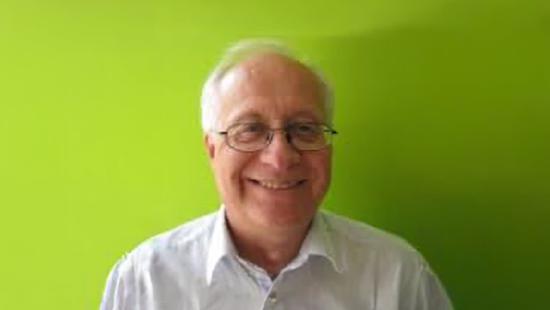We recently interviewed our Chairman, Terry Waller. See his answers to our questions below:
Can you tell us a little about your background and career choices?
I was born in Portsmouth and as my father was a grocery shop manager we moved frequently, mainly along the south coast, eventually settling on Devon. I was a bit of a bookworm and loved the local library, as in those days it was an old fashion quiet place to read and study. The librarian who managed the local library was really helpful and he inspired me to follow that career path. After qualifying I worked as a schools and children’s librarian in Hertfordshire before settling in a similar role in Rugby, which is where for the first time I worked with special schools. It was during this time that computers started to appear in the workplace, so suddenly less time filing tickets and more time engaging with customer’s needs. This combination of seeing the potential of technology and a growing understanding of education for all, prompted a career change, working first for the National Council for Educational Technology, which later on became Becta, which became the lead government agency for educational technology. There I worked as part of the special needs team, and helped to shape and drive an inclusive national strategy for technology. Both roles, as a librarian and as an inclusion policy manager, focused on social benefit, and this desire to empower people to achieve their full potential has always driven me.
You have always been a strong advocate for diversity and equality, do you think society is getting it right these days?
We have made great strides in becoming a more inclusive society, but there is much still to do. Attitudes have changed in recent years with a growing recognition of the contribution that everyone can make to society. I believe we are now a much more tolerant and aware society, and one that values diversity, although there are without doubt some worrying trends, both internationally and in the U.K., which potentially threaten to reverse this progress.
What do you think have been some of the most important developments for Deaf people in the UK?
I have been a passionate advocate of technology all of my career, and believe it can have a transformational effect on people’s lives, although I recognise that ensuring the benefits are for everyone has often required lobbying and legislation. Television and the Internet, email, social media and the web, have made a significant contribution to breaking down barriers between people. The growth in subtitled and signed programming, is significant, although the representation of deaf people in mainstream programmes still has a way to go.
In schools I have seen fantastic use of interactive whiteboards, software that supports reading and writing, and multimedia which supports diverse forms of communication, not to forget Skype and FaceTime, and other internet based video conferencing systems. Sound systems and an awareness of the importance of good acoustics, coupled with good practice in inclusive teaching and learning is making a real difference in improving the educational outcomes of deaf children and young people. The rise of affordable and increasingly accessible smartphones and tablets has got to be one of the biggest breakthroughs, for adults and children alike, in providing both entertainment and communication anywhere it is needed.
Virtual reality is maybe still some way off, but augmented reality applications (such as Signly - developed by Deafax and Intermedia Solutions), and widely used apps such as maps and navigation software provides real independence. Google translate for BSL may not be far off, and the development of real time translation, maybe not welcomed by all, could be transformational for many people who become deaf later in life.
Is there anything new or exciting on the ‘assistive technologies’ front that you would like to tell us about?
Assistive technology is increasingly becoming inclusive technology, and rather than being a niche product targeted at people with disabilities, is making personal devices accessible for everyone. I’m excited about the prospect of the internet of things becoming mainstream (i.e. affordable!), with smarter interactions between connected technologies, allowing people to control and monitor home appliances remotely. Combined with developments in artificial intelligence this would provide everyone with more time to do the things that are important to them.

